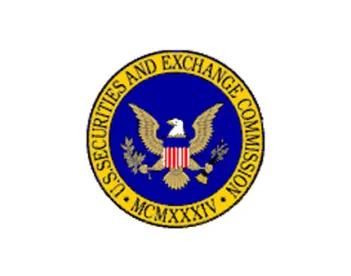SEC Chair Mary Jo White recently delivered the keynote address at the Silicon Valley Initiative hosted by the SEC-Rock Center for Corporate Governance at Stanford University. While the speech and its focus on unicorns attracted some initial media attention, the subsequent response has been surprisingly muted given that Chair White provided a number of regulatory signals not only to unicorns (and other investment-backed private companies) but also to the venture capital and private equity funds that invest in them.
In our view, there are at least three key takeaways from Chair White’s speech for private investment funds. First, and perhaps now most obviously, the SEC is monitoring unicorn valuations and the broader market implications (especially in the event of a unicorn bust). Under the circumstances where there has been so much discussion about the possibility of a unicorn bubble (and bust) it is not at all surprising that the SEC is focused on the area. Market bubbles tend to involve practices that implicate securities laws and regulators have been criticized in the past for being too passive and reactive.
Second, in the event of substantial devaluations, the SEC is likely to scrutinize the roles of venture capital and private equity funds. Indeed, Chair White repeatedly referenced the roles (and the implicit obligations) of private funds with respect to private companies. While that revelation may come as a shock to some, the SEC’s regulatory authority extends to all securities transactions, whether private or public. Chair White specifically and pointedly emphasized that securities transactions in all companies, both public and private, are subject to SEC scrutiny under the anti-fraud provisions of the federal securities laws. As such, even venture capital firms that qualify as Exempt Reporting Advisers (and therefore are not registered as investment advisers with the SEC) are subject to regulatory scrutiny arising from their investments in, and involvement with, portfolio companies – whether public or private. “Unregistered” does not necessarily mean “unregulated.”
Third, the SEC is likely to scrutinize the facts and circumstances surrounding the financing and valuation of private companies, particularly those that involve substantial losses or changes in value. Chair White foreshadowed several of the areas that the SEC is likely to focus on, with a particular emphasis on risks for investors. For example, Chair White highlighted the duties of candor and fair dealing owed by companies seeking pre-IPO financing and stated that SEC staff would seek to ensure that the information supplied to potential investors in private offerings is complete and “accurately reflects the performance and prospects” of the company. Chair White pointedly compared “the publicity and pressure to achieve the unicorn benchmark” to the pressure “felt by public companies to meet projections they make to the market with the attendant risk of financial reporting problems.”
Chair White’s expansive view of “investors” provides another regulatory signal. According to Chair White, investors include “employees” who “are typically paid, in part, in stock and options.” Later, Chair White questioned the implications for “both those investing in the unicorn round, and those that came before and after, whether in private or public transactions” and stated that the SEC intends to look at “the downstream effects on other market participants.” Taken together, these comments suggest that the SEC may focus on the effects of stock restrictions, including liquidation preferences or anti-dilution provisions, which could impact valuations and decision-making by company boards.
Beyond investment rounds, Chair White also observed that weak internal financial controls and inadequate corporate governance practices present risks for investors. Driving the point home further, Chair White put the onus on a company’s institutional investors to ensure that the private company has proper financial controls and corporate governance practices. Indeed, Chair White concluded her remarks on corporate governance with a potentially ominous question: “Is your company, in short, being run and governed for the benefit of all of your investors[?]” While admittedly rhetorical, Chair White made sure her office’s position is clear: “[W]hether the company is public or private [] it is the responsibility of all market participants and their advisers to ensure that this overarching obligation is being fulfilled.”
At first glance, a casual observer might assume that Chair White’s remarks in Silicon Valley were directed at the start-up companies that populate the region. However, upon closer inspection, we believe that her intended audience was not principally the unicorn companies themselves, but rather the private investment funds – and venture capital firms in particular – that invest in these companies.





 />i
/>i

